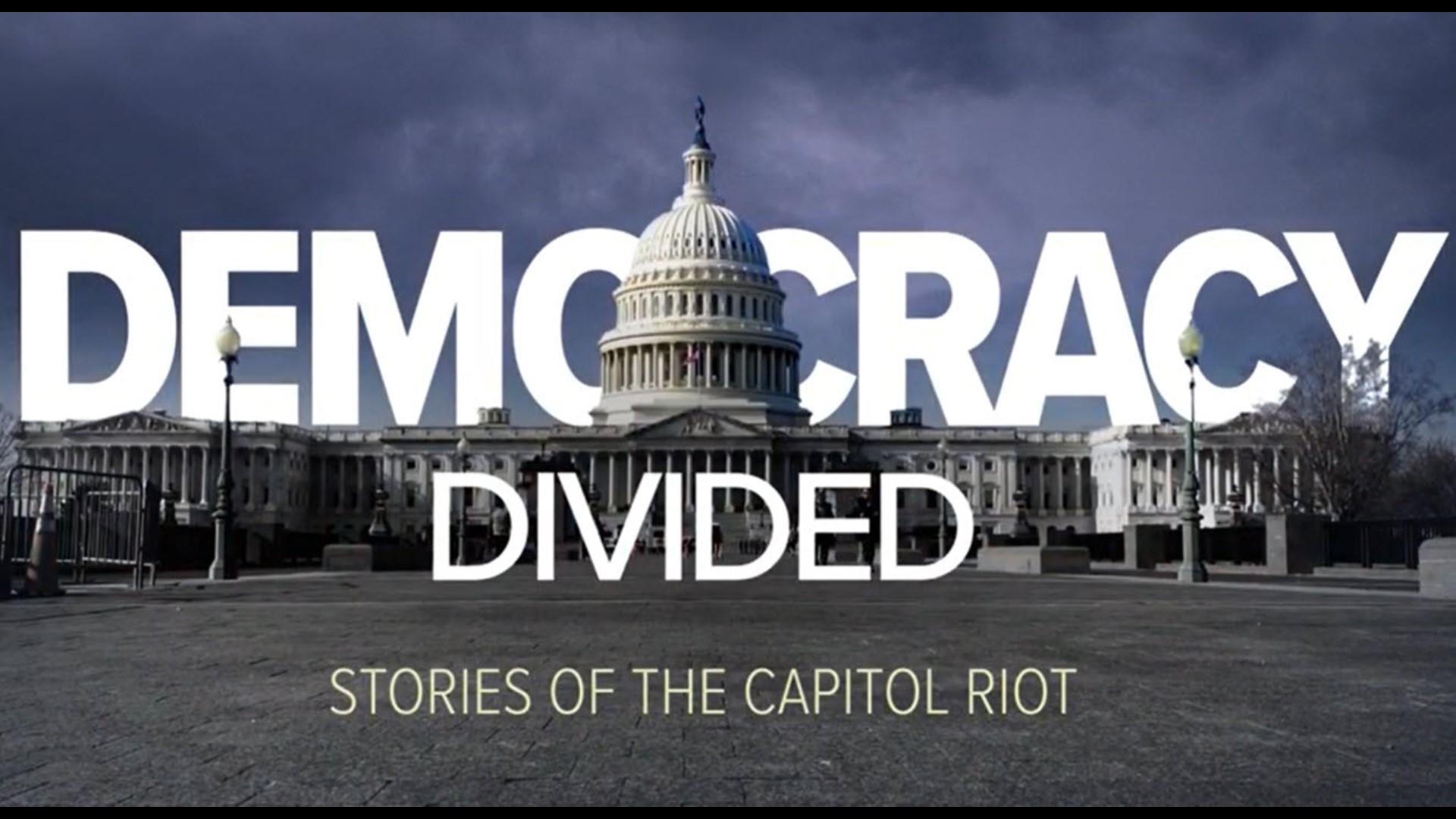WASHINGTON — A federal appeals court upheld the most commonly used felony charge in hundreds of Jan. 6 cases on Friday – but left open the question of whether a different challenge might have succeeded.
In a 2-1 decision, a three-judge panel of the D.C. Circuit Court of Appeals voted to reverse a lower court judge’s decision to dismiss obstruction of an official proceeding charges against three Jan. 6 defendants. The ruling preserves hundreds of ongoing prosecutions, as well as convictions in some of the government’s highest-profile cases. Those convictions include all but one of the nearly two dozen Oath Keepers who have gone to trial or pleaded guilty.
At issue was whether the statute, a post-Enron obstruction law, was limited only to actions taken with respect to a document or record – shredding records that had been subpoenaed by Congress, for example. U.S. District Judge Carl Nichols, a former deputy assistant attorney general who was nominated to the federal bench by former President Donald Trump in 2019, ruled it was. On Friday, the D.C. Circuit panel said it was more appropriately read as a “catch-all” provision to catch obstructive conduct that wasn’t previously covered.
“Under the most natural reading of the statute, § 1512(c)(2) applies to all forms of corrupt obstruction of an official proceeding, other than the conduct that is already covered by § 1512(c)(1),” D.C. Circuit Court Judge Florence Pan, wrote.
Pan, who was first nominated to the D.C. Circuit Court by former President Barack Obama in 2016 and then renominated, successfully, by President Joe Biden in March 2021, noted that fourteen of Nichols’ fellow judges on the D.C. District Court had declined to adopt his reasoning, as had the “vast majority” of other courts that had taken up the question, including bot the Seventh and Eight Circuits.
Pan’s opinion was joined in part by D.C. District Court Judge Justin R. Walker, who was first nominated to the federal bench by former President Donald Trump in June 2019 and then elevated as one of his final appellate court nominations in May 2020. D.C. Circuit Court Judge Gregory G. Katsas, who served as deputy White House counsel during the Trump administration before being nominated to the D.C. Circuit Court in September 2017, dissented.
Though the panel’s ruling upheld the charge, it also signaled potential problems for the Justice Department in Jan. 6 cases where defendants aren’t also charged with an “independently corrupt” act of obstruction – for example, assaulting police. At issue is the statute’s requirement that defendants “corruptly” obstruct an official proceeding. Judge Walker, who joined Pan in reversing the district court’s ruling, said he would have taken the question up event though it was not part of the original ruling.
“I would give ‘corruptly’ its long-standing meaning,” Walker said. “It requires a defendant to act ‘with an intent to procure an unlawful benefit either for himself or for some other person.’”
Under the definition Walker endorsed, the Justice Department would have to show Jan. 6 defendants both knew they were acting to obtain an “unlawful benefit” but also it must have been their “objective or purpose.”
Pan, in the lead opinion, urged the Circuit to wait until the issue was actually raised by a defendant in an appeal – noting a premature ruling on the definition of “corruptly” could have far-ranging effects on cases outside of Jan. 6 prosecutions.
“For example, the concurring opinion dos not appear to consider that there are around 50 other references to ‘corruptly’ in Title 18 of the U.S. Code,” Pan wrote. “Adopting the concurrence’s definition of ‘corruptly’ could make it more difficult for the government to prosecute all the crimes defined in those other statutes – including obstruction of justice under 18 U.S.C. § 1503, a statute for which the Supreme Court has declined to approve the very definition of ‘corruptly’ espoused by the concurrence.”
Pan noted that at least one Jan. 6 defendant, former Rocky Mount, Virginia, police officer Thomas Robertson, already has targeted “corruptly” as an issue in the appeal of his conviction. Robertson was sentenced to more than seven years in prison in August on six counts.
The panel’s ruling required Nichols to reinstate the obstruction charges against all three defendants in the appeal. One, Garret Miller, of Texas, pleaded guilty in December to the other 11 counts against him. He was sentenced to 38 months in prison in February. The remaining two defendants, Joseph Fischer and Jacob Lang, continue to await trial.
We're tracking all of the arrests, charges and investigations into the January 6 assault on the Capitol. Sign up for our Capitol Breach Newsletter here so that you never miss an update.

